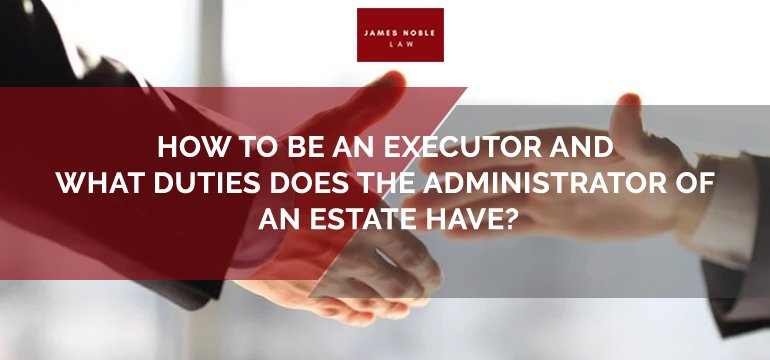When a person creates a Last Will and Testament, they are required to appoint an executor or Will Administrator who acts to administer the person’s estate upon their death. Although many ask:
How To Be an Executor of a Will or Will Administrator of an Estate?
The executor of a Will or Will Administrator is responsible for ensuring that all outstanding debts and taxes are paid to creditors/debts, and, all remaining assets are distributed according to the deceased person’s final wishes provided for in the Will.
As this position requires a high level of trust and accuracy, the executor must act with great care and integrity when fulfilling the role. If you have been named as an executor to an estate, it is vital to put the interests of the estate and any beneficiaries (persons who will receive any assets) of the estate above anything else.
It is important to mediate any conflicts which arise during this process, as the executor cannot be biased and take the side of one beneficiary over another. The best way to avoid or minimize conflict is to maintain clear and regular communication with all beneficiaries about what is happening with the estate.
Situations Involving Numerous Executors / Will Administrator of an Estate
Where there is more than one executor to the estate, you are required to consult with the other and agree on a proposed course of action before any steps can be made to administer the estate.
As executor, all liabilities of the estate must be accounted for and all assets must be properly managed and protected until they can be distributed to the respective beneficiary.
How To Be an Executor of a Will / Will Administrator of an Estate
The process to become an Executor of a Will or Will Administrator may include:
- protecting and auditing the deceased’s assets;
- obtaining valuations for those assets;
- confirming that all assets are appropriately insured;
- finding and notifying the beneficiaries of their entitlements under the Will;
- transferring or selling assets (where appropriate)
- maintaining those assets which are not to be sold;
- determining all debts and liabilities of the deceased;
- paying any debts of the deceased (including debts incurred during the course of the administration of the estate);
- defending the Will of the deceased where litigation is commenced against the estate;
- preparing tax returns and obtaining income tax clearances;
- maintaining a statement of assets and liabilities to be provided to beneficiaries upon request and at the conclusion of the administration of the estate; and
- distributing the estate to the beneficiaries in accordance with the Will, only once satisfied that there is no likelihood of a claim being made for a share of the estate.
ALSO READ: How To Avoid Problems Drafting a Will
It is critical to understand that any error in administering the estate (whether deliberate or accidental) may result in you being held personally responsible for any financial losses of the estate.
Therefore, the above-mentioned duties must be adhered to. If you require assistance with the administration of an estate, seek legal advice to ensure this process is properly performed.
Article Source: Executor Of A Will sprunki horror Endless Fun Awaits!



